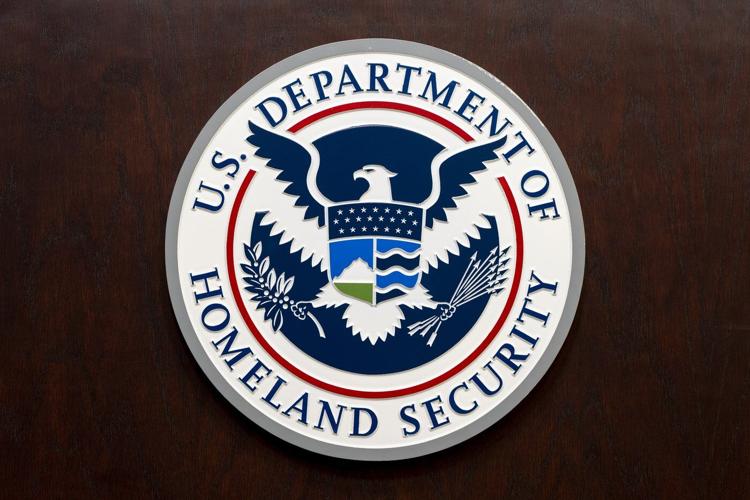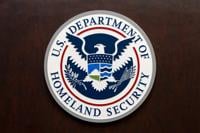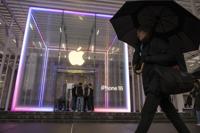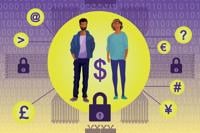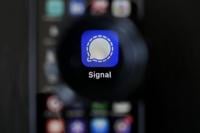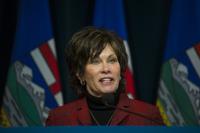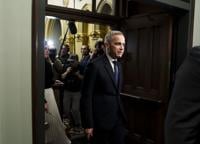WASHINGTON (AP) — The H-1B visa has long been a highly coveted employment visa for foreign citizens with specialized skills to live and work in the U.S., and recent requests from the Trump administration have put greater attention on the program.
The requests for more information from people applying for or renewing H-1B visas come amid heightened tensions as President Donald Trump on his vow of mass deportations of people in the country illegally.
Much of Trump's agenda has been focused on arresting people in the country illegally or . There has been less attention on employment-based visas or other parts of the legal immigration system — though international students have had their .
The requests for information come as the H-1B visa program is already a source of division within Trump’s Republican Party.
Here’s a look at what the H-1B visa program is, what critics and supporters say about it, and how the administration's recent questions have raised concerns.
What is an H-1B visa?
The H-1B was created as part of the 1990 Immigration Act.
It is a type of nonimmigrant visa, meaning it allows for a temporary stay in the U.S. and is not intended for people who want to immigrate permanently. Some eventually do, but only after transitioning to different immigration statuses.
An H-1B allows employers to hire foreign workers who have specialized skills and a bachelor's degree or equivalent.
Who uses H-1B visas?
The visa is most commonly associated with the tech industry. About 60% or more of the H-1B visas approved every year since 2012 have been for computer-related jobs,
But health care facilities, financial institutions, universities and just about any other employer looking to address workforce shortages can and do apply for H-1B visas.
The number of new visas issued annually has been capped at 65,000, plus an additional 20,000 for people with a master's degree or higher. Some employers, such as universities and nonprofits, are exempt from the limits.
People from India are by far the biggest users of these visas, according to Pew. The organization said that since 2010, the majority of approvals every year have gone to people born in India.
What makes the H-1B program controversial?
The idea behind the H-1B visa is that it allows employers to hire from abroad for jobs that they haven't been able to fill in the U.S.
Proponents say the visa is a critical tool for hard-to-fill positions. But critics on both sides of the aisle have said that it undercuts U.S. citizens who could take those jobs. Some on the right have called for the program to be eliminated. And earlier this year, Bernie Sanders, an independent senator from Vermont, wrote a scathing saying the program's real purpose was to “replace American workers with lower-paid workers from abroad who often live as indentured servants.”
The debate over the future of H-1B visas is especially pronounced within the GOP.
On one side are wealthy members of the tech world who support the visas to help bring in more highly skilled workers. On the other side are people of Trump’s Make America Great Again base who championed his immigration policies and say these visas allow employers to pay foreigners lower wages than if they hired Americans.
The issue played out in a late last year after Trump tapped , who favors bringing in more skilled immigrants into the U.S., as an adviser on artificial intelligence policy.
What's going on with reports of unusual letters over H-1B visas?
In recent days, some immigration lawyers have reported receiving unusual requests about clients applying for or renewing H-1B visas or other types of employment-related visas.
Kevin Miner, a partner at global immigration law firm Fragomen, said dozens of members from the American Immigration Lawyers Association, or AILA, received the requests in letters over roughly the last two weeks.
He cited two versions: One says the immigration service has identified “adverse information” related to the visa applicant, and they must schedule an appointment to collect biometrics for the case to proceed.
The second, he said, just says that biometrics are needed without any mention of “adverse information.” Miner said these requests have generally been asked of people applying for or renewing an H-1B visa or an I-140, which is an employee-sponsored green card.
Miner pointed to two things that make these requests unusual: Generally, biometrics aren’t required for these types of visas and, usually, when the government wants more information, its requests are specific.
“It’s usually a back-and-forth process,” said Miner, who chairs a policy and benefits committee for the nonpartisan AILA. “This is different.”
Miner also said that if the government is going to add additional steps to the process, officials would usually go through the notice-and-comment period, which alerts lawyers and applicants of approaching changes.
“That’s not something that they’ve done here,” Miner said.
A spokesman for U.S. Citizenship and Immigration Services, which falls under the Department of Homeland Security, said in an emailed statement that they are increasing screening and vetting of all foreign citizens filing for immigration benefits as part of the Trump administration's “commitment to restoring integrity to our immigration system" and said those efforts had “lapsed” under the previous administration.
“Collecting beneficiary information and biometric data is a necessary part of USCIS’s efforts to promote national security and public safety and to mitigate fraud by conducting screening and vetting in all immigration programs and the agency is proud to be returning to this important work,” agency spokesman Matthew Tragesser said.
What is happening with immigration policy?
The Trump administration has promised mass deportations of people living in the U.S. illegally, tried to strip hundreds of thousands of people of their deportation protections and is revoking visas of international students.
More than 1,000 international students have had their visas or legal status revoked since early April, according to an Associated Press review of university statements, correspondence with school officials and court records.
The revocations often come with little notice to either students or their schools, and are being initiated by the government, a departure from past precedent — university officials have largely made administrative updates to the database when a student graduated or fell out of good academic standing.
Miner said people are concerned that similar actions might follow for those on employment-related visas.
“There’s just so much unknown,” he said.
___
Associated Press reporter Annie Ma contributed to this report.

